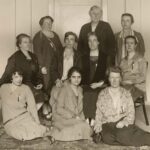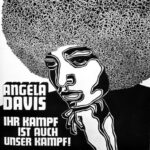 Research Initiative Political Epistemologies of Eastern Europe (PECEE): Friedrich Cain and Dietlind Hüchtker (Vienna), Bernhard Kleeberg (Univ. of Erfurt), Karin Reichenbach (Leipzig), and Jan Surman (Praha) (Web)
Research Initiative Political Epistemologies of Eastern Europe (PECEE): Friedrich Cain and Dietlind Hüchtker (Vienna), Bernhard Kleeberg (Univ. of Erfurt), Karin Reichenbach (Leipzig), and Jan Surman (Praha) (Web)
Time: 13.–15.10.2022
Venue: Prague, Liblice, and virtual space
More than 30 years ago, Donna Haraway published her iconic essay „Situated Knowledge. The Science Question in Feminism and the Privilege of Partial Perspective“, where she discusses the issue of objectivity in feminism. She understands „objective knowledge“ as bound to a specific historical point in time and space – precisely as „situated knowledge“. The conference „Gendering Epistemologies“ seeks to reflect its current pertinence, considering the differentiation of gender related debates from feminism to queer theories, to trans activism and beyond, but also in the face of current social challenges like hate speech and fake news, conspiracy theories and public questioning of established scientific values. Thus, it looks at how gender-shaped (especially scientific) knowledge and truth claims are tied to gender (politics) in Central, Eastern and South-Eastern Europe in the 20th and 21st centuries.
Keynote: Aleksandra Derra (Toruń, Poland): The Role of Feminist Theory in Building Complementary Knowledge
Panels: Activism and Objectivity | Gendered Politics | Scientific Authority and Gender | Gendering Institutions | Media of Truth
PECEE: The research initiative Political Epistemologies of Central and Eastern Europe (PECEE) investigates modes of (self-)reflexivity in the history of the sciences and … read more (Web).
Source: H-Net Notifications

 NS-Dokumentationszentrum München, Bayerischen Museumsakademie
NS-Dokumentationszentrum München, Bayerischen Museumsakademie  Institut für Wirtschafts- und Sozialgeschichte der Universität Wien
Institut für Wirtschafts- und Sozialgeschichte der Universität Wien  Bezirksmuseen Reloaded: Perspektivenwechsel
Bezirksmuseen Reloaded: Perspektivenwechsel  Aspasia. The International Yearbook of Central, Eastern, and Southeastern European Women’s and Gender History
Aspasia. The International Yearbook of Central, Eastern, and Southeastern European Women’s and Gender History  ZARAH Public Lecture
ZARAH Public Lecture  Alfred Klahr Gesellschaft
Alfred Klahr Gesellschaft